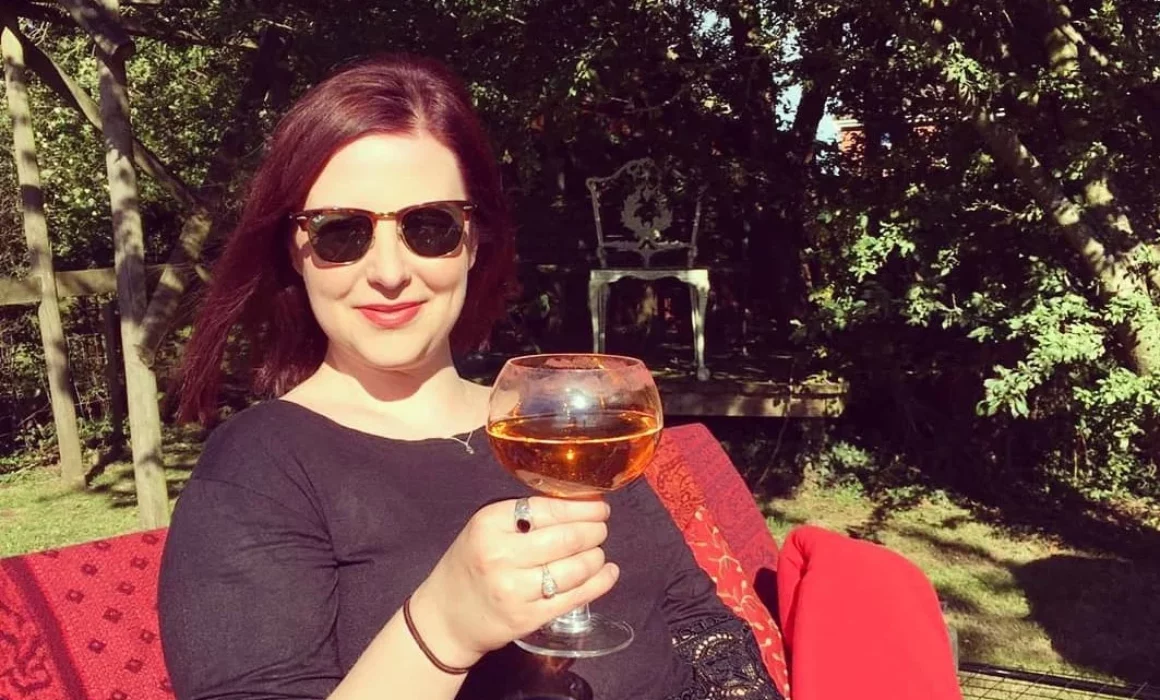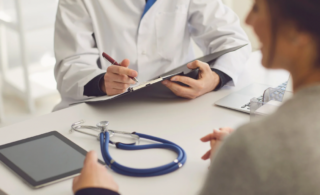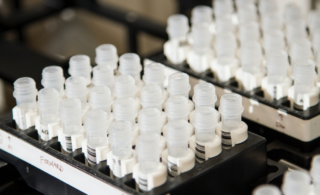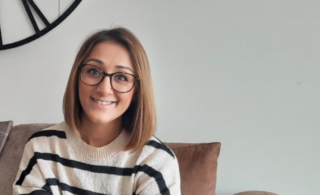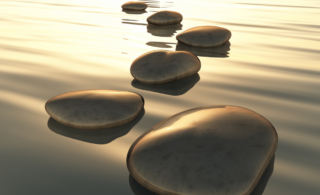
Let's Nail Breast Cancer - Help support our urgent appeal on the 19th - 20th May 2024
Let's Nail Breast Cancer - Help support our urgent appeal on the 19th - 20th May 2024
Let's Nail Breast Cancer - Help support our urgent appeal on the 19th - 20th May 2024
Let's Nail Breast Cancer - Help support our urgent appeal on the 19th - 20th May 2024
Let's Nail Breast Cancer - Help support our urgent appeal on the 19th - 20th May 2024
TRIGGER WARNING: THIS ARTICLE DISCUSSES SECONDARY BREAST CANCER
This article discusses one woman’s experience of being diagnosed with secondary breast cancer (all timelines are as they were at the date of writing in August 2020).
By Kate
Breast cancer has been a part of my life for nine years now. It first made itself known in 2011 when, at the tender age of twenty-one, I unearthed a hard, immobile lump in my right breast. My narrative is a rather long one, having been diagnosed three times before thirty, so we’ll hone in on the now. Now in 2019, I have been told that I must bear the weight of a stage 4 diagnosis.
The news of my recurrence came at a time when I mostly expected it. I am disappointed with myself for this self-fulfilling prophecy that I fueled with negative, life-limiting thoughts; I had never truly believed in my heart that I would be done with breast cancer. Oddly, I hadn’t spoken to an oncologist for years prior to stage 4 – my breast, and my breasts alone, were scanned yearly and I received my results from my breast cancer surgeon, a thoroughly amiable and supportive woman who acted upon any concerns I had promptly, calling into action a series of tests to rule out further spread whenever I felt a neurosis about an ache or a swelling somewhere in my body.
So, when I experienced a dull ache and discomfort in my left hip last year, after hearing my pleas, she requested a CT scan, and then a full body MRI, and then a bone scan and biopsy. It took months to finalise the diagnosis due to a series of red herrings (see curve balls like no ‘hot spot’ on my bone scan’) and the diagnosis was only given due to my persistence, my policing of my body and its changes. You see, stage 4 is a diagnosis slapped on your hefty file when your sneaky cancer cells have infiltrated a far-flung location outside of the primary site. Such cancer may not be detectable in your yearly scans and so it is your responsibility to truly get to know your body, to pay attention to how it may be attempting to communicate with you.
My secondary cancer is in my left hip bone and it is stable – meaning there is no active disease. The drug regime I am on is no doubt helping to keep the rogue cells in their place. I like to think of the treatments I receive as a hug of bear-like proportions, suppressing the cells’ movement and potentially even eradicating their potency. But medicine along isn’t enough to navigate stage 4 breast cancer and I believe I am not a passive victim in this process of healing.
Labels like ‘incurable’ are often speedily applied to individuals (not ‘patients’ please!) with stage 4 cancer. And yet, for me such a declaration of ‘fact’ doesn’t sit quite right. Stage 4 has meant a thundering wake up call to begin healing emotionally and spiritually – to address the potential causes for my inward turmoil. I target my disease with several additional therapies and actions to mindfully heal from the inside out: meditation, reiki, nutrition, gentle exercise and more. What’s so important is to acknowledge that those trips to the hospital target side effects of disease in your body but don’t necessarily focus on the root causes.
I do not possess any of the genetic mutations that are said to contribute to a greater chance of developing breast cancer. In many ways I see this lack of a definite answer as liberating. For me, it means I have limited potential to address my cancer, to look it straight in the eyes and surround it with love and healing intention. The silver linings of my current state are brighter than ever now: I am powerfully aware of the beauty and strength of my body, to hold me up, to heal, to propel me about my day and to facilitate the difference I seek to make each day at work amongst young people.
As a secondary school teacher, I have an endless passion for life and for helping others to embrace it too. I know I have so much more to give to this world and am now acutely aware of the value of each day. There is no lamenting the coming of Monday, no wallowing in self-pity or negative thoughts. Instead, I surround myself with what I envision as a golden sphere, receiving light and life in my quest to really live.
There certainly needs to be more for stage 4: more research, more funding, more awareness of the potential causes and signs. Individuals are still not being armed with enough information about their cancer’s ability to return. I hope that by being open and honest about my experiences that I can help alleviate some of the fear that come with any stage of diagnosis. Stage four doesn’t mean your life is over, for me it means it is truly, meaningfully beginning. I know myself so much more now, having become acquainted with knowledge about myself I may never have had. That’s why I feel it imperative that we spread messages of hope and potential, :you and I have so much more power than we are led to believe.
August 2020
To return to the homepage of our Information Hub, click here where you can access more helpful information, practical advice, personal stories and more.
Future Dreams hold a range of support groups, classes, workshops and events to help you and your carers during your breast cancer diagnosis. These are held both online and in person at the London-based Future Dreams House. To see what’s on offer and to book your place, see here.
August 2020 (Reviewed February 2024)
This article was written by a guest author based on their own experience of breast cancer and its treatment. It is important to note that this is one person’s experience and that whilst there may be commonalities between the experiences of different people, everyone has a different diagnosis/treatment plan/general experience. The information and content provided in all guest articles is intended for information and educational purposes only and is not intended to substitute for professional medical advice. It is important that all personalised care decisions should be made by your medical team. Please contact your medical team for advice on anything covered in this article and/or in relation to your personal situation. Please note that unless otherwise stated, Future Dreams has no affiliation to the guest author of this article and he/she/they have not been paid to write this article. There may be alternative options/products/information available which we encourage you to research when making decisions about treatment and support.
Share

Support awareness research
Donate to those touched by BREAST cancer
Sylvie and Danielle began Future Dreams with just £100 in 2008. They believed nobody should face breast cancer alone. Their legacy lives on in Future Dreams House. We couldn’t continue to fund support services for those touched by breast cancer, raise awareness of breast cancer and promote early diagnosis and advance research into secondary breast cancer without your help. Please consider partnering with us or making a donation.
